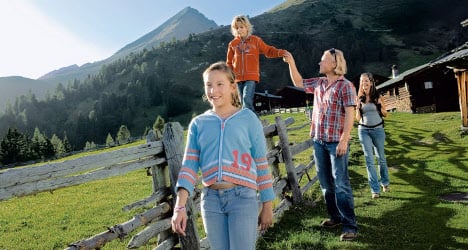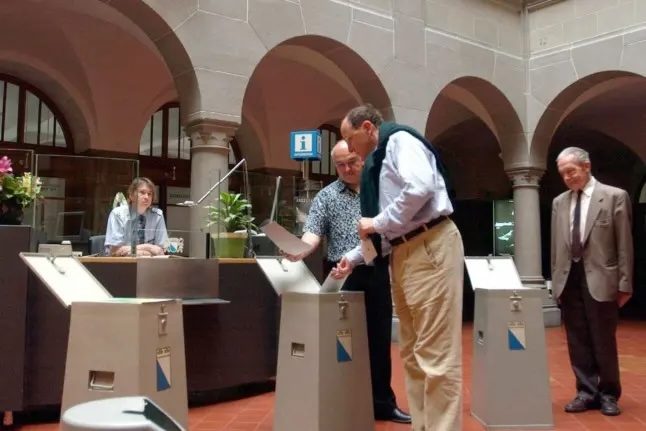Save the Children released the report 'Every Last Girl' for the International Day of the Girl Child on Tuesday.
The report used its so-called Girls' Opportunity Index to rank the world's countries according to five indicators: child marriage, adolescent fertility, maternal mortality (as an indicator to access to good-quality healthcare), women MPs and lower-secondary school completion.
Switzerland placed ninth in the table, which was topped by Sweden, closely followed by Finland, Norway, the Netherlands and Belgium in the top five.
“While there is much to celebrate, there is still a mountain to climb until we reach a world in which girls will have the same opportunities as boys,” wrote Helle Thorning-Schmidt, CEO of Save the Children International and Kevin Watkins, CEO of Save the Children UK, in a press release.
Some developed nations such as the UK (15) and Canada (19) were pulled down the rankings by not having enough women represented in parliament. Forty-five percent of MPs in table-topping Sweden are women, compared to 29 percent in the UK and 19 percent in the US.
“Only three of the countries with the highest proportion of female MPs are high income countries – Sweden, Finland and Spain. Rwanda tops the table with 64 percent of female MPs, followed by Bolivia and Cuba,” read the report.
A traditionally conservative country, Switzerland only granted women the vote at federal level in 1971. But since then the country has made advances in sexual equality in politics.
In 2010 its seven-member federal council had a female majority for the first time after the election of justice minister Simonetta Sommaruga. However the balance is currently in favour of men, with only two women in the federal council.
Some 32 percent of MPs in the Swiss lower house of parliament are women.
Other high-income nations, such as the US (32), were let down by relatively high adolescent fertility and maternal mortality rates, according to Save the Children.
Fourteen women died per 100,000 live births in the USA in 2015; a similar number to Uruguay and Lebanon, and far higher than the three deaths per 100,000 in Poland, Greece and Finland,” it stated.
At the bottom of the list were Niger (144), Chad (143), the Central African Republic (142), Mali (141) and Somalia (140).
“The worst places to be a girl are amongst the poorest in the world. These countries have extremely high rates of deprivation across all indicators. They must focus urgently on ensuring that policy and practice uphold girls' rights,” said the report.



 Please whitelist us to continue reading.
Please whitelist us to continue reading.
Member comments